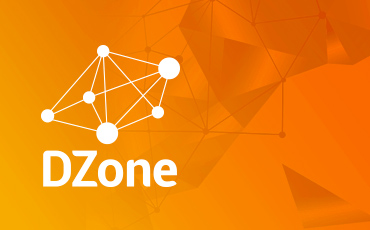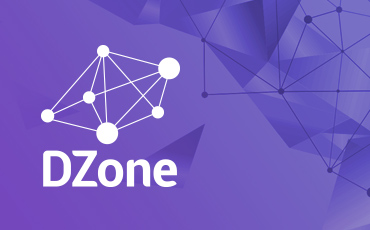7 Things I Didn’t Expect to Hear at Gartner’s IT Ops Summit
Last week’s Gartner IT Operations Strategies & Solutions Summit in Orlando, Fla., was exactly what you’d expect—a place to talk about the IT operations issues impacting some of the largest companies in the world. Even so, there were a few interesting surprises. Among them: 1. Bi-modal is big. Not everyone will succeed. Gartner continued to tell its customers to employ two modes of IT—a traditional, slower moving capability for older, typically internal systems of record; and a high-speed, experimental one for new, typically customer-facing Web and mobile apps. “This is a time of experimentation and innovation,” said Gartner VP and distinguished analyst Chris Howard in his opening keynote. Organizations can’t ignore that there are multiple speeds and they should participate in all. Gartner managing VPRonni Colville added that by 2017, 75% of IT orgs will have this “bi-modal” IT capability. See also: Bi-Modal IT: Gartner Endorses Both Disruptive and Conservative Approaches to Technology However, “50% will make a mess of it,” Colville said. Why? Not necessarily because of technology failings, but more often because of a lack of people skills. 2. IT success is all about people. Donna Scott, also a Gartner VP and distinguished analyst, told her keynote audience that “you will be judged on agility, speed, and innovation.” However, the biggest problems Gartner sees for infrastructure and operations team engagement and innovation are lack of time, company culture that’s not conducive to these approaches, and a lack of business skills in IT. More than half of the people responding to an in-room poll said “people” are the part of IT ops that must change first. Not technology. Gartner research director George Spafford underscored similar issues in large organizations trying to use DevOps at scale: people and “human factors” are the biggest concerns from his in-room poll. All these probably contributed to hiring best-selling author Daniel Pink as a keynote speaker on the opening day of the conference. His focus? Not IT or architecture. Instead, he pounded home the importance of influencing people and selling internally. 3. Big orgs are trying DevOps. But the issues are different at scale. In numerous sessions I saw many hands go up when analysts asked, “Who here is trying DevOps?” Clearly, the approach is getting traction in large companies. But there’s lots of learning still to do. In fact, that was Spafford’s biggest bit of advice. “Always be learning,” he said, “trying to see what works and what breaks, especially at scale.” And, even once you’ve had some initial success, keep learning. “If you’ve done DevOps, stay humble,” he advised. 4. Looking to innovative organizations for ideas … analytics on the rise. Many sessions addressed how large organizations are taking on ideas fostered by smaller, more risk-tolerant companies, and offered advice for doing so successfully. In addition to multiple discussions of DevOps, an entire session was devoted to establishing your own “Genius Bar®—a “walk-up IT support center” as explained in this CIO article. As at previous conferences, Gartner research VP Cameron Haight ran several sessions on lessons learned from firms running massive, Web-scale IT systems. “You need lots of data … and access to it inexpensively,” he said. Some commercial monitoring companies (New Relic included!) got a shout out for taking the lessons of Web scale IT to heart in their offerings. In addition, Haight said, “Analytics are increasingly important for application performance monitoring given the huge amount of data now available.” 5. Cloud: Enterprises want it, but aren’t very good at it yet. Gartner research director Dennis Smith talked through the enterprise’s interest in cloud computing. A huge majority of his in-room poll wanted some mix of both public and private cloud, while only 9% wanted to use only a private cloud environment and a measly 4% were looking to move entirely to the public cloud. The most popular choice (41%) was an 80/20 split between private and public cloud infrastructure. “Enterprises don’t make the dean’s list,” for cloud usage, Smith said, earning no more than a C average in his opinion. Large organizations are doing well at visibility, governance, and delivering standardized stacks, he said, but are less skilled at optimizing for these new environments. Still, Smith said the trends point toward enterprises improving on all fronts. 6. Cloud security can be better than yours. Importantly, Gartner VP and distinguished analyst Neil MacDonald gave the cloud a vote of confidence: noting that, for a variety of reasons, “Well-managed public cloud can be more secure than your own data center.” For example, on-premise software can pose serious security risks, he said, because of “deployment lag” where customers are stuck using software releases with unpatched security vulnerabilities. With a cloud-based Software-as-a-Service (SaaS), security updates can be more quickly rolled out to all customers. But cloud security can be different, requiring a shift to information-level security from OS-level security. Best practices include doing away with a huge pool of all-powerful sysadmins in favor of JEA, or “just enough administration,” where sysadmins have just enough privileges to do their job, and no more. An analogous security practice for compute resources is “least privilege,” where apps and microservices can’t talk to each other unless they specifically need to do so. Audience polling supported MacDonald’s optimistic view of cloud security, which suggests that large enterprises may struggle less with their cloud policies moving forward. 7. Containers: Try ’em! Ahead of this week’s DockerCon in San Francisco, Gartner devoted significant airtime to educating the audience on containers and microservices. My summary of Gartner VP and distinguished analyst Tom Bittman’s advice on containers was simple: Try ’em. Now. Complement them with VMs. And Docker (the company) is important, but not the be-all and end-all in this space. Bittman (copping to some deja vu from Gartner presentations he made on server virtualization 13 years ago) noted that while virtualization has been focused on admin and ops functions, containers are focused on value for developers. But because containers are well suited for driving up VM utilization for workloads that share the same OS, we can expect to see more combinations of containers and server virtualization. Finally, Bittman underscored that Gartner doesn’t see containers having much impact on premise, but making a huge difference in the cloud. That doesn’t necessarily fit with what’s been shown in other research, such as this 2015 State of Containers Survey sponsored by VMblog.com and StackEngine, so we’ll want to watch how this plays out. This is all a lot to digest. The Gartner IT Operations Strategies & Solutions Summitacknowledges the importance of dealing with existing IT systems and practices as well as promising new technologies and thinking, and tries to point a way forward. In fact, Haight had a very good quote about microservices that I thought also served to wrap up the entire event: “If you want to run with the big dogs, you need to rethink application architecture,” he said. That can be very difficult for an enterprise to fully implement … but also very appealing. Note: Al Sargent contributed to this post. All product and company names herein may be trademarks of their registered owners. Server, tortoise and hare, business team, and cloud security images courtesy ofShutterstock.com.
June 24, 2015
by Fredric Paul
·
1,676 Views









